|
|
|
« MAIN PROGRAMME » |
|
Biographies |
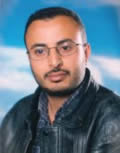 Shawki A. Al-Dubaee,
Aligarh Muslim University, India
Shawki A. Al-Dubaee,
Aligarh Muslim University, India
Shawki A. Al-Dubaee is a research
scholar in department of computer
engineering at Aligarh Muslim
University, India. He was born in 1978,
Taiz, Yemen. He received his B.E
Engineering degree in Computer
Technology Engineering from Technical
College and M.Sc Engineering degree in
Computer Engineering from Mosul
University, Mosul, Iraq, in 2000 and
2003 respectively. In addition, He
received Master of Business
Administration in Information Technology
(MBAIT) from Manipal University in
India, 2009 and Post Graduate Diploma in
Linguistics, Department of Linguistics
and Certificate of Urdu, Department of
Urdu from Aligarh Muslim University,
India, 2008 and 2009, respectively.
Recently, He is a research scholar in
Web intelligence. His research is an
attempt to investigate the use of soft
computing technique to enhance the
current usage of the web, and is
concerned with how or whether those
techniques can contribute to a more
intelligent use of the web.
His current research interests include
Web intelligence, Soft Computing,
Multilingual Web Information Retrieval,
Multilingual Query Processing, Natural
Language Processing (NLP), Data and
Multimedia Mining, Wavelet and
Multi-wavelet, Question Answering
Systems, and Networking. He was a
research visiting at VSB-Technical
University of Ostrava, Ostrava, Czech
Republic (April- July 2009). He is an
IEEE student member, Computational
Intelligence Society member and an IAENG
member. |
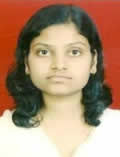 Pranoti Bansode,
Defence Institute of Advanced Technology
Pranoti Bansode,
Defence Institute of Advanced Technology
Ms. Pranoti Bansode has received a
graduation degree in Electronic Science
from Sir Parshurambhau College, Pune,
India in 2008. She completed Post
graduation degree in Electronics Science
from Department of Electronic Science,
Pune of Univesity, Pune, India in year
2010. Currently, she is working as
trainee in Department of Electronic
Science, Pune of Univesity, Pune, India.
Her field of interest is in the field of
antenna design and RF circuit design. |
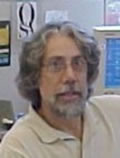 Felipe Rudge Barbosa, State University of Campinas - Unicamp,
Brazil Felipe Rudge Barbosa, State University of Campinas - Unicamp,
Brazil
Dr. Rudge Barbosa holds B.Sc. and M.Sc.
degrees in Physics from the Catholic
University of Rio de Janeiro (PUC-RJ),
and Ph.D. in Electrical Engineering from
the University of Campinas (Unicamp), in
Brazil. He has been active in Photonic
Technology and Optical Communications
(components, systems and networks) for
nearly 30 years. He was technical
consultant, lecturer and senior research
associate for over 20 years in the
Fundaçao CPqD (former Telebras R&D
center); and has recently transferred
his activities to the Photonics
Technology Laboratory (LTF-DSIF), at the
School of Electrical and Computer
Engineering (FEEC) – Unicamp; and also
to the Instituto Namitec, in the Center
for Information Technology, afederal
laboratory in the Ministry of Science
and Technology (MCT-CTI); in the city of
Campinas, Brasil. He was a post-doc
fellow at the University of Colorado,
Boulder, USA (1992); and visiting
professor in the University of
Montpellier, France (2004). He has over
60 peer-reviewed publications in
international conferences, symposia and
technical journals. He is member of the
Brazilian Physical Society (SBF),
Brazilian Telecomm Society; senior
member and member of advisory council of
Brazilian Society for Microwave and
Optoelectronics (SBMO); the IEEE ComSoc,
the Optical Society of America, and
invited expert to the ITU-T (Geneva);
holds two technical prizes in Telecom. |
 Brad Biddle, Arizona
State University, USA
Brad Biddle, Arizona
State University, USA
Brad Biddle is an Adjunct Professor at
Arizona State University’s Sandra Day
O’Connor College of Law, where he
teaches a course on technology
standards. He is also Standards Counsel
for Intel Corporation, where he leads
the worldwide legal team focused on
technology standards development efforts
and other related industry
collaborations; previously he led
Intel’s engagement with the World
Intellectual Property Organization and
the Internet Governance Forum. Brad was
a non-residential Fellow at Stanford Law
School's Center for Internet and Society
from 2007-2010. Brad’s academic work
reflects his personal views. More
information about Brad is available at
http://biddle.us. |
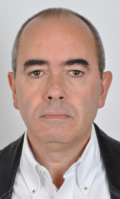 Jorge Carapinha, Portugal Telecom Inovação,
Portugal
Jorge Carapinha, Portugal Telecom Inovação,
Portugal
Jorge Carapinha graduated in Electrical
and Computer Engineering at the
University of Coimbra in 1984 and
received an MSc in Electronics and
Telecommunications from the University
of Aveiro in 1998. Since 1985 he has
been with PT Inovação (formerly CET). He
has worked in several fields including
conformance testing, Virtual Private
Networks, Quality of Service and
backbone networks and technologies. He
has a long record of participation in
international collaborative research
projects, namely in the framework of
European programmes such as IST, ACTS,
CTS, TEN-ISDN and Eurescom. Currently
his work is mainly oriented to Future
Internet topics, with a special focus on
Network Virtualization and Cloud
Networking. He has authored/co-authored
several papers published in technical
journals or presented in international
conferences. |
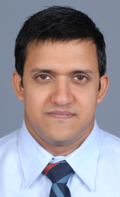 Pankaj Chand,
Independent Researcher, India
Pankaj Chand,
Independent Researcher, India
Pankaj Chand received his Bachelor of
Commerce from St. Xavier's College,
Calcutta under Calcutta University in
2003, and his Master of Computer
Applications from Heritage Institute of
Technology, Kolkata under West Bengal
University of Technology in 2007. He has
worked as a software engineer and
technology consultant on VoIP and IP
Telephony at Hewlett Packard, India. His
prior research includes the improvement
of TCP performance on mobile networks,
specifically Network Mobility (NEMO).
Currently, he is involved in redesign of
the Internet model and defining new
protocols to provide holistic solutions
for mobile and ubiquitous computing. |
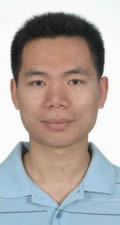 Guowei Chen, Waseda
University, Japan
Guowei Chen, Waseda
University, Japan
Guowei Chen was born in Guangzhou,
China, 1977. He received B.S. and M.S.
degrees in applied mathematics from
Zhongshan University, Guangzhou, China,
in 2000 and 2003 respectively.
He worked in G.D. Nortel, China on UMTS
system development. He is now working
toward Ph.D. degree in Waseda
University. His research interests
include wireless mesh networks, location
detection technology, and p2p systems. |
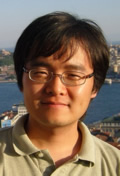 Kideok Cho, Seoul National University, Korea
Kideok Cho, Seoul National University, Korea
Kideok Cho received his B.S. degree
(magna cum laude) from the School of
Computer Science and Engineering, Seoul
National University in 2004. He is
currently working toward the Ph.D.
degree at the Multimedia & Mobile
Communications Laboratory, Seoul
National University, Korea. He was a
visiting researcher at the Advanced
Wireless Networking Laboratory, City
University of New York in 2007. He is a
recipient of the Korea Student Aid
Foundation (KOSAF) scholarship from 2009
to 2010. Since 2006, he has been a
technical secretary of Future Internet
Forum, Korea. His research interests
include content-oriented networks and
wireless/mobile networks. |
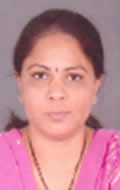 Upena D. Dalal, Sardar
Vallabhbhai National Institute of
Technology, India
Upena D. Dalal, Sardar
Vallabhbhai National Institute of
Technology, India
Dr. (Mrs.) Upena Dalal presently working
as Associate Professor in Electronics
Engineering Department of S. V. National
Institute of Technology, Surat, INDIA.
She has 18 years of academic experience.
She completed her B.E. (Electronics)
from SVRCET, Surat in 1991 and obtained
M.E (Electronics & Communications) from
DDIT, Gujarat with Gold Medal. She is
also awarded with 5th N.V. Gadadhar
memorial Award by IETE. She has
published many conference and journal
papers at national and international
level. She has guided many UG and PG
projects, dissertations and seminars in
the area of advance communication
systems. She has completed Ph.D. in 2009
and guides 5 research scholars
presently. Her book on “Wireless
Communication” is published by Oxford
University Press in July 2009. One more
book edited by her and Dr Y P Kosta
titled “WiMAX New Developments” is
published by Inteh, Vienna, Austria. She
is honored by “Rashtriya Gaurav Award”
by India International Friendship
Society. Recently she is received Best
Technical Woman award by Divyabhaskar. |
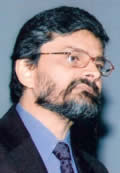 Uday B. Desai,
Director, Indian Institute of
Technology, Hyderabad, India
Uday B. Desai,
Director, Indian Institute of
Technology, Hyderabad, India
Uday B. Desai received the B. Tech.
degree from Indian Institute of
Technology, Kanpur, India, in 1974, the
M.S. degree from the State University of
New York, Buffalo, in 1976, and the
Ph.D. degree from The Johns Hopkins
University, Baltimore, U.S.A., in 1979,
all in Electrical Engineering.
Since June 2009 he is the Director of
IIT Hyderabad.
From 1979 to 1984 he was an Assistant
Professor in the School of Electrical
Engineering and Computer Science
Department at Washington State
University, Pullman, WA, U.S.A., and an
Associate Professor at the same place
from 1984 to 1987. From 1987 to May 2009
he was a Professor in the Electrical
Engineering Department at the Indian
Institute of Technology - Bombay. He was
Dean of Students at IIT-Bombay from Aug
2000 to July 2002. He has held Visiting
Associate Professor's position at
Arizona State University, Purdue
University, and Stanford University. He
was a visiting Professor at EPFL,
Lausanne during the summer of 2002. From
July 2002 to June 2004 he was the
Director of HP-IITM R and D Lab. at
IIT-Madras.
His research interest is in wireless
communication, cognitive radio, wireless
sensor networks and statistical signal
processing. He is also interested in
multimedia, image and video processing,
artificial neural networks, computer
vision, and wavelet analysis. He is
interested in the development of
communication and other technologies
that can be exploited for the betterment
of rural India. He is the Editor of the
book "Modeling and Applications of
Stochastic Processes" (Kluwer Academic
Press, Boston, U.S.A. 1986) and
co-editor of Second Asian Applied
Computing Conference, Springer Verlag
(2004). He is also a co-author of three
books "A Bayesian Approach to Image
Interpretation", "Multifractal based
Network Modeling", and Multihop Mobile
Wireless Networks.
Dr. Desai is a senior member of IEEE, a
Fellow of INSA (Indian National Science
Academy), Fellow of Indian National
Academy of Engineering (INAE), and a
Fellow of The Institution of Electronic
& Telecommunication Engineers (IETE). He
is the recipient of J C Bose Fellowship.
He is also the recipient of the
Excellence in Teaching Award from
IIT-Bombay for 2007. He was an associate
editor of IEEE Transactions on Image
Processing form Jan 1999 to Dec. 2001.
He is on the Technology Advisory Board
of Microsoft Research Lab. India. He
also on to advisory board of several
startups. He was the Chair for IEEE
Bombay Section 2006-2008. He was also on
the Visitation Panel for University of
Ghana. |
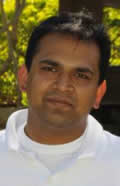 Jai Ganesh, Infosys
Technologies Ltd, India
Jai Ganesh, Infosys
Technologies Ltd, India
Jai Ganesh obtained his PhD in
Information Systems from Indian
Institute of Management Bangalore,
during March 2003 and also and also hold
an MBA degree in corporate strategy and
marketing. Jai heads the Future Web
Research Lab in Infosys Technologies
Ltd. and is and is involved in research,
innovation, IP creation, thought
leadership and new product development
in the areas of Web 2.0, Web
Accessibility, Usability, Standards,
Social Network Analysis, Augmented
Reality and Future Interaction
Technologies. Jai conceptualized and led
the development of iProwe
(http://www.infosys.com/offerings/products-and-platforms/iprowe/Pages/index.aspx
) which is India’s first patent pending
product for Web Accessibility &
Usability Assessment and Remediation.
Jai has published in journals such as
Information and Management, AIS
Transactions on HCI, CAIS, JIST, Journal
of Global Information Management,
International Journal of Retail and
Distribution Management etc. and
conferences such as ICWS, AMCIS, ICEC,
ICEB, ECOWS etc. Jai serves as a
reviewer for a number of peer-reviewed
journals and conferences, and has
consulted for many software firms. Jai
is a strong proponent of information and
communication technology driven
inclusive and sustainable economic
growth involving participation from
enterprises, communities,
intermediaries, universities, research
labs and governments. |
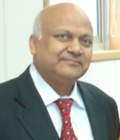 N. K. Goyal, President, CMAI Association of India
N. K. Goyal, President, CMAI Association of India
Mr. Goyal, Senior Telecom Analyst is Post Graduate in Science with
experience of about 38 years in telecom/IT.
He is President, Communications and Manufacturing Association of India (CMAI);
Chairman Emeritus of Telecom Equipments Manufacturers Association of India (TEMA);
Senior Vice President, HP Chamber of Commerce and Industries and is actively
involved in policy formulations and development of industrial policies
specially related to telecom and IT sector.
He is former Director of National Institute of Entrepreneurship and Small
Business Development (NIESBUD) having served Government of Himachal Pradesh
PSUs for 21 years plus including seven years as General Manager
(Development) of State Electronic Development Corporation Ltd., engaged in
Project implementation, infrastructure development, industrial consultancy,
strategic operations etc. He was then on deputation to a telecom solution
provider company for about ten years as President Operations. He is also
Director on the Board of Directors of National Fertilizers Ltd., Government
of India PSU.
He is an International Speaker of repute, having spoken on various
International forums such as CEATEC,ITU, IEEE, TAITRONICS, KES, ITU Asia ITU
APT and CTO. |
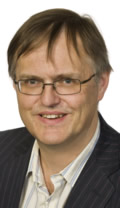 Ian Graham, University
of Edinburgh, UK
Ian Graham, University
of Edinburgh, UK
Ian Graham graduated with a degree in
Production Engineering and Management.
After working in the engineering and
automotive industries he began lecturing
in Operations Management, first at
Heriot-Watt University and latterly at
the University of Edinburgh. He first
became involved in standards research as
part of a European Union study of EDI
nearly twenty years ago and since then
has been involved in a series of
projects analysing ICT standardisation
drawing on concepts from the sociology f
technology. |
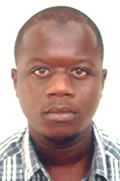 Bamba Gueye, University Cheikh Anta DIOP of Dakar, Senegal
Bamba Gueye, University Cheikh Anta DIOP of Dakar, Senegal
Bamba Gueye received his Master in
Computer Science from the University
Cheikh Anta Diop de Dakar, and Master's
degree in Networking from University
Pierre et Marie Curie (Paris 6) in 2003.
In december 2006, he received the Ph.D.
degree in Computer Science from the
University Pierre et Marie Curie.
Between 2007 and 2010, he was Research
Assistant (PostDoc position) at the
Université de Liège, Electrical
Engineering and Computer Science
Department.
His research interests are in Internet
measurements, focusing on Internet
Coordinate Systems (ICS),
measurement-based geolocation, bandwidth
measurements, and Wireless Sensors
Networks (WSN). He studies the impact of
Triangle Inequality Violations (TIVs) on
ICS. Since TIVs are an inherent to the
Internet, it is mandatory to build
systems that are TIV-aware. Therefore,
he considers exploiting TIVs to mitigate
their impact on ICS and improve overlay
routing.
In the geolocation arena, he works on
geographically locating Internet hosts
from its IP address. He works also on
characterizing the Internet. In WSN, he
studies clustered-based WSN in order to
mitigate the energy consumption of
sensors.
He is currently assistant professor with
University Cheikh Anta Diop de Dakar,
Senegal. |
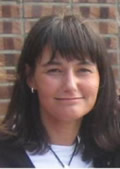 Eva Ibarrola,
University of the Basque Country, Spain
Eva Ibarrola,
University of the Basque Country, Spain
Eva Ibarrola received the B.S. and M.S.
degrees in Telecommunications
Engineering from the University of the
Basque Country, Spain, in 1991. In 2010
she received the Ph.D. in
Telecommunications Engineering from the
same University for her work in the area
of user-centric QoS management models.
Prior to joining University of the
Basque Country in January 2000, she
worked as an expert engineer in the CNSO
(National Centre for Supervision and
Operations) of Telefónica.
She has been cooperating in different
R&D projects related with
telecommunications QoS evaluation and
measurement. Her research interests
focus mainly on user’s oriented Quality
of Service (QoS) management models and
frameworks and Quality of Experience (QoE)
evaluation. |
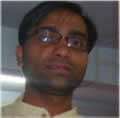 Rakesh Jha, Sardar Vallabhbhai
National Institute of Technology, India
Rakesh Jha, Sardar Vallabhbhai
National Institute of Technology, India
Rakesh Kumar Jha received B.Tech.
(Electronics & Communication
Engineering) and M.Tech. (Wireless
Communication Engineering) degree in
2005 and 2008, respectively. Presently
pursuing Doctorate Degree (PhD) in
Electronics & Communication Engineering
from National Institute of Technology,
Surat- India. He has published many
conferences and journal papers at
national and international level
including Scientific Research Journal.
His one concept related to Router of
Wireless Communication is accepted by
Computer society of India (CSI).His
research interest includes Wireless and
Optical Communication. Currently he is
doing his research work in WiMAX and its
Security issues. He is working on OPNET
simulation and NS2 tools for Wireless
Communication. Free to contact:
jharakesh.45@gmail.com
https:www.jharakeshnetworks.com |
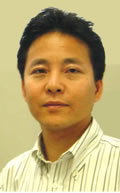 Masahiko Jinno, NTT,
Japan
Masahiko Jinno, NTT,
Japan
Masahiko Jinno graduated with a M.E.
degree in electronics engineering from
Kanazawa University, Ishikawa, Japan in
1986. He then joined Nippon Telegraph
and Telephone Corporation (NTT) to study
ultra-fast optical signal processing for
high-capacity optical time division
multiplexed transmission systems. From
1993 to 1994, he investigated optical
sampling and optical time-domain
reflectometry as a guest scientist at
the National Institute of Standards and
Technology (NIST), Boulder, Colorado,
USA. He received his Ph.D. degree in
engineering from Osaka University,
Osaka, Japan in 1995 for his work on
ultra-fast optical signal processing
based on nonlinear effects in optical
fibers. From 1996, he conducted his
pioneering research on ultra-wideband
DWDM transmission systems in L-band and
S-band. In 2003 after two year
experience in development of wireless
and wire-line access systems at NTT
West, he started research on photonic
networks with a focus on generalized
multiprotocol label switching and
application-aware photonic networking in
NTT Network Innovation Laboratories. His
current interests include architecture,
design, management, and control of
spectrally-efficient optical networks,
bandwidth-agnostic wavelength
crossconnects, optical OFDM based
flexible transceivers, and relevant
device technologies. Dr. Jinno authored
or co-authored over 140 peer-reviewed
journal and conference papers during his
20 year career, and received the Young
Engineer Award from the Institute of
Electronics, Information and
Communication Engineers (IEICE) in 1993,
the Best Paper Awards for the in 1997,
1998, and the 2007 Optoelectronics and
Communications Conferences (OECC). |
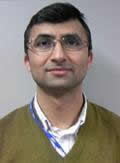 Ved P. Kafle, National
Institute of Information and
Communications Technology, Japan
Ved P. Kafle, National
Institute of Information and
Communications Technology, Japan
Ved P. Kafle has been working as a
researcher at the National Institute of
Information and Communications
Technology (NICT), Japan. He is also a
member of the AKARI Architecture Design
Project for New Generation Networks. He
is involved in designing new generation
network architectures and protocols,
considering emerging (as well as future)
network environments and application
requirements. In particular, he is
currently investigating the research
challenges of node identification and
location architectures of the New
Generation Network or future Internet.
He has been awarded with the ITU
Association of Japan Award in 2009 for
his active contributions to the
standardization of Next Generation
Network architectures. He also received
the best paper award (second prize) at
the ITU-T Kaleidoscope event on
Innovations for Digital Inclusion, 2009.
Dr. Kafle received the B.E. degree in
electronics and electrical
communications from Punjab Engineering
College (now PEC University of
Technology), Chandigarh, India, the M.S.
degree in computer science and
engineering from Seoul National
University, South Korea, and the Ph.D.
in informatics from the Graduate
University for Advanced Studies, Japan. |
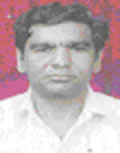 Raj Kumar, University of Pune,
India
Raj Kumar, University of Pune,
India
Raj Kumar was born on 14th May 1963 in
District Muzaffarnagar U.P. India. He
has completed his M. Sc. Degree
specialized in Electronics in 1987 from
University of Meerut, M. Tech. and Ph. D
degree in Microwave in 1992 and 1997
respectively from University of Delhi
South Campus, New Delhi. He worked at
CEERI Pilani for 1993-94 as a research
associate. From May 1997 to June 1998,
he worked as Assistant Prof. in
Department of Electronics and
Communications Engg, Vellore College of
Engg.(Now VIT), Vellore. He Joined DLRL,
Hyderabad as Scientist from June 1998 to
August 2002 and later on came in DIAT in
Sept 2002. At present, he is Scientist
‘E’ in Department of Electronics
Engg.,DIAT(Deemed University), Pune. He
established a Microwave and Millimeter
Wave Antenna Laboratory in DIAT(DU),Pune
and formulated the M. Tech. Programme in
the department from 2010. He has written
several technical paper in reputed
International Journal and International
conference. His field of interest is
Electromagnetic Analysis, Design of
filters, Multiplexers, Power dividers,
Couplers, Miniaturization of Antenna,
Multiband Antenna and Ultra wideband
Antennas, and Electromagnetic band-Gap |
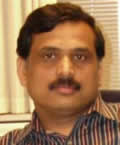 Sanjay Kumar, Birla
Institute of Technology, India
Sanjay Kumar, Birla
Institute of Technology, India
Sanjay Kumar was born in Ranchi, India
on January 18, 1967. In 1994 he received
MBA degree from Pune University, and
M.Tech. in Electronics and Communication
Engineering from Guru Nanak Dev
Engineering College, Ludhiana, India in
the year 2000. Subsequently he obtained
his PhD degree in Wireless
Communications from Aalborg University,
Denmark in the year 2009. He served the
Indian Air Force from the 1985 to 2000,
where he was involved in the technical
supervision and maintenance activities
of telecommunications and radar systems.
He was also a guest researcher at
Aalborg University during 2006 to 2009,
where he worked in close cooperation
with Nokia Siemens Networks and Centre
for TeleInFrastruktur. He also worked as
a guest lecturer in the department of
Electronics Systems at Aalborg
University during the years 2007 to
2009.
Presently he is working as an Associate
Professor in the Department of
Electronics and Communications
Engineering at Birla Institute of
Technology, Mesra, Ranchi. His
responsibilities include teaching,
research and project coordination at
graduate and post-graduate levels of
study and supervision of PhD works in
the area of Wireless Communications
Technology. He has been very closely
associated with organization, reviewing
process and participation in several
conferences and workshops in the field
of Wireless Communications. His current
interest also lies in the field of
wireless communications especially
Cognitive Radio and Flexible Spectrum
Usage. |
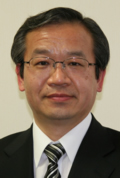 Yoichi Maeda, General Chair, Kaleidoscope; TTC, Japan
Yoichi Maeda, General Chair, Kaleidoscope; TTC, Japan
Yoichi Maeda received B.E. and M.E.
degrees in electronic engineering from
Shizuoka University, Japan, in 1976 and
1978, respectively. Since joining NTT in
1980, he has been engaged in research
and development on access network
transport systems for broadband
communications including SDH, ATM, and
IP for 26 years. From 1988 to 1989 he
worked for British Telecom Research
Laboratories, United Kingdom, as an
exchange research engineer. Since 1989
he has been an active participant in
ITU-T SGs 13 and 15. He has been serving
as vice-chair of ITU-T SG13, chair of
WP3 of ITU-T SG13, and chair of OAN
(Optical Access Network)-WG of FSAN
(Full Service Access Network) from 2001
to 2004. He has had an appointment of
chair of ITU-T SG15 for the 2009-2012
study period in October 2008 at
WTSA-08 for his second term. He is CEO
and S.V.P. of TTC (The Telecommunication
Technology Committee) in Japan. He is a
Fellow of the IEICE of Japan. He has
several publications on B-ISDN standards
including Introduction to ATM Networks
and B-ISDN (1997, John Wiley &Sons). |
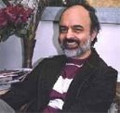 Prof. Arun Mehta, President, Bidirectional Access Promotion Society (BAPSI), India
Prof. Arun Mehta, President, Bidirectional Access Promotion Society (BAPSI), India
I obtained a B. Tech degree from IIT Delhi in 1975,
a Masters in Computer Sciences from the State
University of Stony Brook in two semesters
thereafter with the equivalent of a 4.0 GPA. I then
worked with Siemens AG in Erlangen, Germany for
three years, designing the electricals, electronics
and process control software for steel rolling
mills. In 1979, I returned to Mumbai, India, where I
designed and marketed hard wired and programmable
solutions for a large variety of industrial control
problems. In 1982 I joined the PhD program of the
Ruhr University, Bochum, Germany, as a fellow of the
Friedrich Ebert Foundation. My solution for a
time-optimal crane controller demonstrated a 5%
improvement in the throughput of a 35-ton grab crane
at Hamburg-Wedel, and was also presented at the
World Congress of the International Federation of
Automatic Control in Munich, 1987. I was awarded the
"Dr.-Ing" title the same year.
On returning to India, I became the Managing
Director of Indata Com Private Limited, in which
capacity I write software, teach, and provide
consultancy services. My clients include Tata Iron
and Steel Ltd, Jamshedpur, and the University of
Pittsburgh, for whom I developed software that helps
in the early detection of Alzheimers' disease. I
have written extensively for publications in India,
Pakistan, the US and Germany. In 2000, I started
radiophony.com together with Vickram Crishna, a .com
dedicated to audio-centric solutions to the problems
of the under-privileged. At the request of Professor
Stephen Hawking, I wrote eLocutor, free and open
source software that allows persons as severely
disabled as him to write and speak. I have taught
programming as a volunteer at the National
Association for the Blind, helping my students
become members of international development teams of
cutting edge software that will help improve the
lives of not just the blind.
Currently, my passion is software that might make it
easier for children with autism, cerebral palsy and
dyslexia to communicate, which is being made
available free of cost at skid.org.in and documented
at arpitblog.wordpress.com. This software received
the Manthan Award in 2008.
I have conducted three workshops, each a week long,
with autistic children and their care givers, to
find ways that persons with severe communication
disorders might learn to use the computer to
communicate. I mentor a few students at school and
college level with severe disabilities, helping them
with their computing problems, even writing special
software to make it easier for them to communicate.
From 1989 to 1991, I was President of the Indian
section of Amnesty International, and have since
been at the forefront of initiatives to improve
cyber rights and telecommunications policy, to allow
rapid spread of the benefits of information
technologies to all segments of society. I am part
of the ONI-Asia project, in which I am seeking to
make the monitoring of Internet filtering in India
sustainable.
I moderate several Internet discussion groups, most
notably india-gii@cpsr.org which brings together
experts from academia, government, industry and the
media to critically examine India's bumpy progress
along the information highway.
I am a professor and chairman of the computer
engineering department at JMIT, Radaur, an
engineering college in rural Haryana, 180km from
Delhi. I have taught Pascal, PL/1, Visual Basic,
Ruby, Perl, C and C++ programming, as well as web
technologies, including Ruby on Rails.
I have co-authored a book "Technology and
Competitiveness", which was published by Sage, and
compares the machine tool industries of Brazil and
India. In 2007, O'Reilly published "Beautiful Code",
in which the world's leading programmers, including
Brian Kernighan and Matz, contributed a chapter
each. In this Jolt-award winning book, I am proud
author of a chapter on eLocutor, entitled "When a
button is all that connects you to the world." |
Boris Moltchanov,
Telecom Italia, Italy
Boris Moltchanov received a Ing. Degree
in information technologies and computer
since from Politecnico di Torino (Italy)
in August 1997 – Summa Cum Laude; and
bachelor degree in management, marketing
and world economy from Volgograd State
Technical University (Russian
Federation) in January 1999 – Summa Cum
Laude.
In 1999-2000 he held researcher position
at Politecnico di Torino (Italy).
In 2000 he joined TILab (formerly CSELT)
as expert of Mobile Terminals, SIM/SmartCards
and Value Added Service platforms. In a
moment of biggest Telecom Italia
expansion in the International arena he
was involved in strategy and roadmap
definition for VAS and Service Platforms
evolution for all international Telecom
Italia’s subsidiaries.
Currently he has moved step forward and
is involved in definition and
prototyping of disruptive services
accordingly to the Research&Trends
initiative of Telecom Italia. He is
involved in a number of EU projects
addressing innovative services.
In the last couple of years he’s
delivering his know-how of the Service
Layer evolution performed in Telecom
Italia to foreign companies within
Telecom Italia’s interests.
He’s author of some international
patents, papers and frequent speaker in
various conferences, workshops and
congresses as well as participant and
member of some standardisation entities
such as OMA and TMF. |
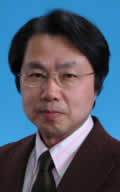 Yoshitoshi Murata,
Iwate Prefectural University, Japan
Yoshitoshi Murata,
Iwate Prefectural University, Japan
Yoshitoshi Murata received his M.E from
Nagoya University, Japan. He received
his Ph.D from Shizuoka University,
Japan. From 1979 to 2006, he was
belonging to NTT and NTT DoCoMo and
developing mobile communication systems,
mobile terminals and services. Since
2006, he is a professor of faculty of
Software and Information Science, Iwate
Prefectural University and a researcher
of National Institute of Information and
Communications Technology. Prof. Murata
was awarded the best paper of the ITU-T
“Innovations in NGN” Kaleidoscope
Academic Conference 2008. His research
interests include mobile communication,
sensor network, sensor database and
integrated media communication. He is a
member of IEEE, IEICE and IPSJ. |
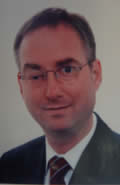 Detlev
Otto, CTO, Nokia Siemens
Networks, Germany
Detlev
Otto, CTO, Nokia Siemens
Networks, Germany
Detlev Johannes Otto is the Head of
Technology for our Customer Business
Team Vodafone at Nokia Siemens Networks
with global responsibility for driving
network and network architecture
evolutions and convergence, as well as
strategic long-term marketing
activities.
Prior to joining Nokia Siemens Networks,
Detlev Johannes Otto worked in senior
positions at Siemens Communications.
Notably are his five years as Vice
President Product Management for 3G
products and WCDMA and his 12 years
experience in sales where he took
increasing responsibilities from program
manager, sales manager towards head of
sales for US and satellite business for
mobile networks, and lastly head of
customer solution center for sales
Europe. He started his career at Siemens
Defense Electronics in 1987 as a project
manager for the German Air Defense
“Patriot” Program.
Detlev Johannes Otto is a German
citizen, born in 1962. He completed
high-school and university in Germany,
where he acquired a “Diplom” (MSc) in
industrial engineering in 1987. In 2000
he completed the Siemens Advanced
Management Program in collaboration with
the Duke University. |
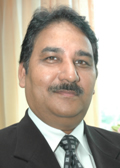 Anil Prakash, Secretary General, ITU-APT Foundation of
India
Anil Prakash, Secretary General, ITU-APT Foundation of
India
Anil Prakash is a specialist in government relations, regulatory and policy
framework with over 29 years of domestic and international techno-commercial
experience in telecom, IT and the entertainment industries.
He helped to establish PTC India Foundation, a country chapter of Pacific
Telecommunications Council in India in 1994, Telecom Users Group of India in
1997 a country Association of INTUG, ITU-APT Foundation of India in 2003,
and the IPTV India Forum in 2006. He is an active member of regional and
international telecom forums and trade bodies.
He is also President of Telecom Users Group of India, Secretary General,
ITU-APT Foundation of India and Secretary General, IPTV India Forum. |
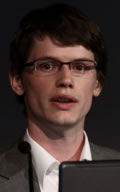 Klemen Peternel,
University of Ljubljana, Slovenia
Klemen Peternel,
University of Ljubljana, Slovenia
Klemen Peternel is a Ph.D. student and
received his B.S. degree in electrical
engineering from University of
Ljubljana, Faculty of Electrical
Engineering, Slovenia in 2007. He joined
the Laboratory for Telecommunications in
2006 as a researcher. He has extensive
research and industrial experience in
the analysis and design of next
generation telecommunications systems
services and various RFID technologies.
He is recipient of Student award 2002
from University of Ljubljana, Faculty of
Electrical Engineering, and University
Incubator Ljubljana reward for The Best
Business Idea 2005, 1st place. He was
leading researcher on a project which
took 2nd place on NFC Forum’s contest
“The Most Innovative NFC Research
Project of the Year 2009”. |
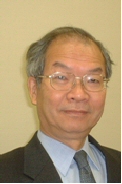 Tadao Saito,
Professor Emeritus, University of Tokyo,
Japan
Tadao Saito,
Professor Emeritus, University of Tokyo,
Japan
Dr. Tadao Saito received the Ph. D
degree in electronics from the
University of Tokyo in 1968. Since then
he was a lecture, an associate professor
and a professor of the University of
Tokyo, where he is now a Professor
Emeritus. Since June 2001, he is a
professor of Chuo University and the
Chief Scientist and CTO of Toyota
InfoTechnology Center, where he studies
future ubiquitous information services
around automobile.
He worked in variety of subjects related
to digital communication and computer
networks. His research includes variety
of communication networks and its social
applications such as ITS. He is also the
chairman of Ubiquitous Networking Forum
of Japan working for future vision of
information society. He is also the
chairman of Next Generation IP Network
Promotion Forum of Japan. He wrote two
books on electronic circuitry, four
books on computer and two books on
digital communication and multimedia.
From 1998 to 2002 he was the chairman of
Telecommunication Business Committee of
the Telecommunication Council of
Japanese government and contributed to
regulatory policy of telecommunication
business for broadband network
deployment in Japan. He is also the
Japanese representative of International
Federation of Information Processing
General Assembly and Technical Committee
6 (Communication System). He is a fellow
of IEEE and IEICEJ |
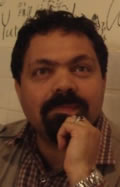 Kavé Salamatian, Professor, Université de Savoie,
France Kavé Salamatian, Professor, Université de Savoie,
France
Kavé Salamatian is a professor at
University of Savoie. His main areas of
researches are Internet measurement and
modeling and networking information
theory. He was previously reader at
Lancaster University, UK and associate
professor at University Pierre et Marie
Curie. Kavé has graduated in 1998 from
Paris SUD-Orsay university where he
worked on joint source channel coding
applied to multimedia transmission over
Internet for his Phd. In a former life,
he graduated with a MBA, and worked on
market floor as a risk analyst and on
enjoyed being an urban traffic modeler
for some years. He is working these days
on figuring out if networking is a
science or just a hobby and if it is a
science what are its fundamentals.
|
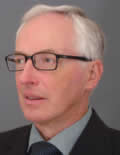 Helmut Schink, Vice
Chairman, ITU-T Study Group 15
Helmut Schink, Vice
Chairman, ITU-T Study Group 15
Head of Standards Wireline, Service
Delivery and Media, responsible for
standardization and regulation. Also
vice-chair of ITU-T SG 15. Previous
engagements include Vice-chair of ITU-T
SG 13. VC of the open IPTV Forum, member
of the board of the IPSphere Forum,
member of the Board of the
Telemanagement Forum, Member of the
board of directors of ICANN, chair of
ETSI project TIPHON on IP Telephony
Over 25 years in business, esp. public
communication networks, holding various
technical and management functions
marketing, like strategic product
planning, business development and
standardization, Corporate management
and in strategic business development,
development of semiconductor processes
for GaAs high speed and low noise
devices and basic research in
micro-analytics
Studied Physics at Technical University
of München and holds a Doctor degree in
the area of micro-analytics and
semiconductor physics. |
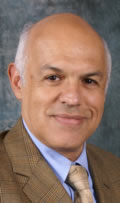 Mostafa Hashem Sherif,
AT&T, USA
Mostafa Hashem Sherif,
AT&T, USA
Mostafa Hashem Sherif has been with AT&T
in various capacities since 1983. He has
a Ph.D. from the University of
California, Los Angeles and both an
M.Sc. and a B.Sc. from Cairo University,
Egypt. He has a M.S. in the Management
of Technology from Stevens Institute of
Technology, N.J., and is a certified
project manager from the Project
Management Institute (PMI). He is the
author of Protocols for Secure
Electronic Commerce, CRC Press, 2nd ed.
(2003), Paiements électroniques
sécurisés, Presses polytechniques et
universitaires romandes, 2006, Managing
Projects in Telecommunication Services,
John Wiley and Sons, 2006 and is a
contributor to Managing IP Networks,
IEEE Press, 2003. He is the editor of
Handbook of Entreprise Integration, CRC
Press, Boca Raton, FL, 2009; a co-editor
of Management of Technology Innovation
and Value Creation, World Scientific
Publications, Singapore, 2008 and New
Directions in Technology Management,
Elsevier Science, Ltd., 2006, Elsevier,
2006. He is also a standards editor for
the IEEE Communications Magazine, an
associate editor of the International
Journal of IT Standards &
Standardization Research and in the
editorial board of the International
Journal of Technology Marketing. |
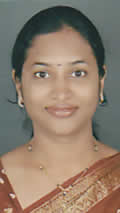 Jayashree Shinde, Sinhgad
Academy of Engineering Jayashree Shinde, Sinhgad
Academy of Engineering
Mrs Jayashree P. Shinde has received an
undergraduate degree in Electronics
Engineering from P.V.P.I.T., Budhgaon,
Shivaji University in year 1997. She was
rewarded a Master of Engineering (M.E.)
degree in Electronics and
Telecommunication with specialization in
Microwaves at Government College of
Engineering, Pune University, in the
year 1999. Currently she is pursuing her
Ph.D. in the Department of Electronics,
Shivaji University, India. Presently she
is working as Assistant Professor in the
Department of Electronics and
Telecommunication, Sinhgad Academy of
Engineering, Kondhwa, Pune. Her research
area includes Microwave and Satellite
Communication, Microstrip Patch Antenna,
Optical Communication and Environmental
effects on Los communication.
|
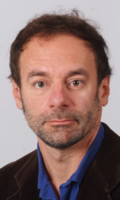 Daniele Trinchero, iXEM
Labs - DELEN, Politecnico di Torino,
Italy
Daniele Trinchero, iXEM
Labs - DELEN, Politecnico di Torino,
Italy
Daniele Trinchero was born in Torino,
Italy, in 1968. He obtained the Laurea
Degree in Electronic Engineering in
1993, and the pHd degree in Electronic
and Telecommunication Engineering in
1997 from Politecnico di Torino. Before
1997 he worked for Politecnico di
Torino, IRITI (now IEIIT), an Institute
of the Italian National Council of
Research (CNR), the Loughborough
University (UK). Starting from December
1997 he has been working for the
Electronics Department of Politecnico di
Torino, Italy, where in Semptember 2005
he founded the iXem Labs, and since then
he has been the labs responsible. He is
also associate to the Institute of
Electronics and Information and
Telecommunication Engineering (IEIIT) of
the CNR. At Politecnico di Torino he
teaches courses on basic electromagnetic
theory, radio planning, electromagnetic
compatibility, and electromagnetic field
measurements.
His research interests are in the
following fields: Wireless Sensor
Networks, Geographical Wireless
Networks, Long Distance Communications,
Antennas, Electromagnetic Field
Propagation, Electromagnetic Field
Measurements, Electromagnetic
Compatibility, Microwave Devices,
Frequency Selective Surfaces, Shielding
Devices, Wireless Solutions for Digital
Inclusion of Developing Regions.
He is maintaining important research
collaborations with several Italian,
European and Extra-European
Universities, Telecommunication Research
Centres, many industrial enterprises,
and non-profit organizations. The group
of Daniele Trinchero has developed new
very-low-cost wireless transmitters able
to carry large bandwidths over huge
distances (up to 300 km). Recently,
Daniele Trinchero has proposed a
revolutionary idea to identify leakages
in pipes used for water distribution. In
the recent past, Daniele Trinchero has
developed theoretical methods for the
assessment of the human exposure in the
vicinity of radio base stations. Those
methods are referenced in the main
International Standards.
Dr. Trinchero is Academic member of the
Subcommittee 106B of the Italian
Electrotechnical Committee (CEI). Since
2005 he has been Convenor of the Italian
working group on wideband digital
measurements. He is member of the IEC TC
106, IEEE TC 34, Cenelec TC 106, Cost BM
0704 working groups. He is serving as a
reviewer for several international
publications. In 2008 he was assigned an
Award by the InterAmerican Development
Bank for the construction of a
Telemedicine and distance learning
wireless network in Eastern Ecuador. In
2009 together with a research group of
the University of Qatar, he was granted
by the Qatar National Research Fund for
studies devoted to the reduction of
water losses in water
distribution networks. |
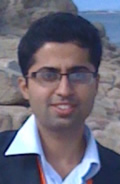 Chaitanya S. K. Vadrevu,
University of California, Davis
Chaitanya S. K. Vadrevu,
University of California, Davis
Chaitanya S. K. Vadrevu is a Ph.D.
candidate in computer science at the
University of California, Davis, USA. He
received his B.S. degree in mechanical
engineering from Indian School of Mines,
Dhanbad, India, in 2007, and his M.S. in
computer science from the University of
California, Davis, USA in 2009. He is a
research assistant in the Networks
Research Laboratory, University of
California, Davis. His research
interests include hybrid circuit/packet
networks, network survivability and
optimization, and cross layer design of
future optical networks. Mr. Chaitanya
was a co-recipient of the best paper
award at the IEEE Advanced Networks and
Telecommunication Systems (ANTS) 2009.
He is collaborating with scientists at
the Energy Sciences Network, Lawrence
Berkeley National Laboratory on hybrid
circuit/packet networks research. |
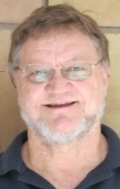 Peter Wentworth,
Professor, Rhodes University, South
Africa
Peter Wentworth,
Professor, Rhodes University, South
Africa
Professor Peter Wentworth started his
career in the computer industry, but
soon moved to academia. He retains links
to industry through a small company
which creates software, and offers
training and consulting services. He is
a regular presenter on networking and
telecommunication technologies and
strategies. He also directs the BingBee
Community Project
(http://www.bingbee.com) which uses
novel contactless technology to provide
secure computer kiosk access to children
at a local community centre. His
research interests include functional
languages, telecommunications
strategies, computational thinking, and
edutainment and gaming for
computer-assisted skills acquisition. |
|
« TOP »
|
|
« MAIN PROGRAMME » |
|
|
|



